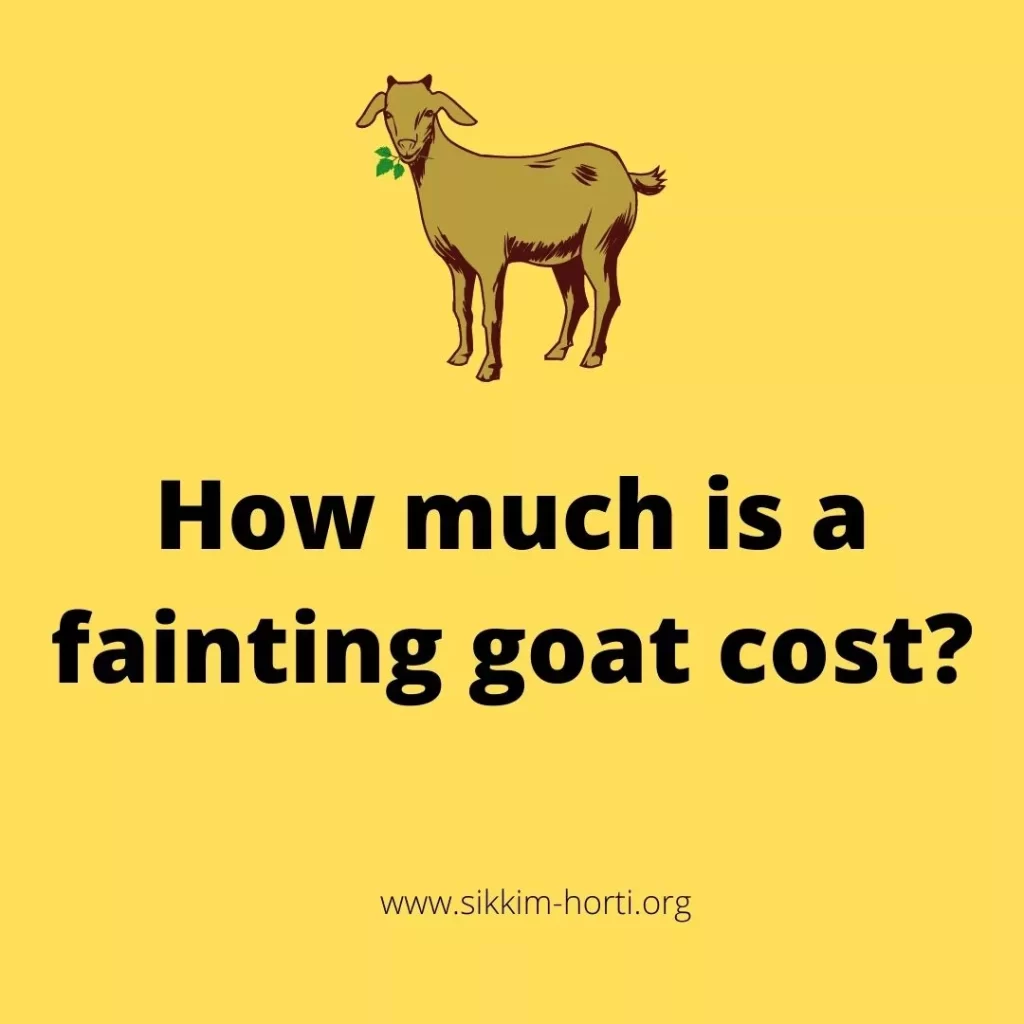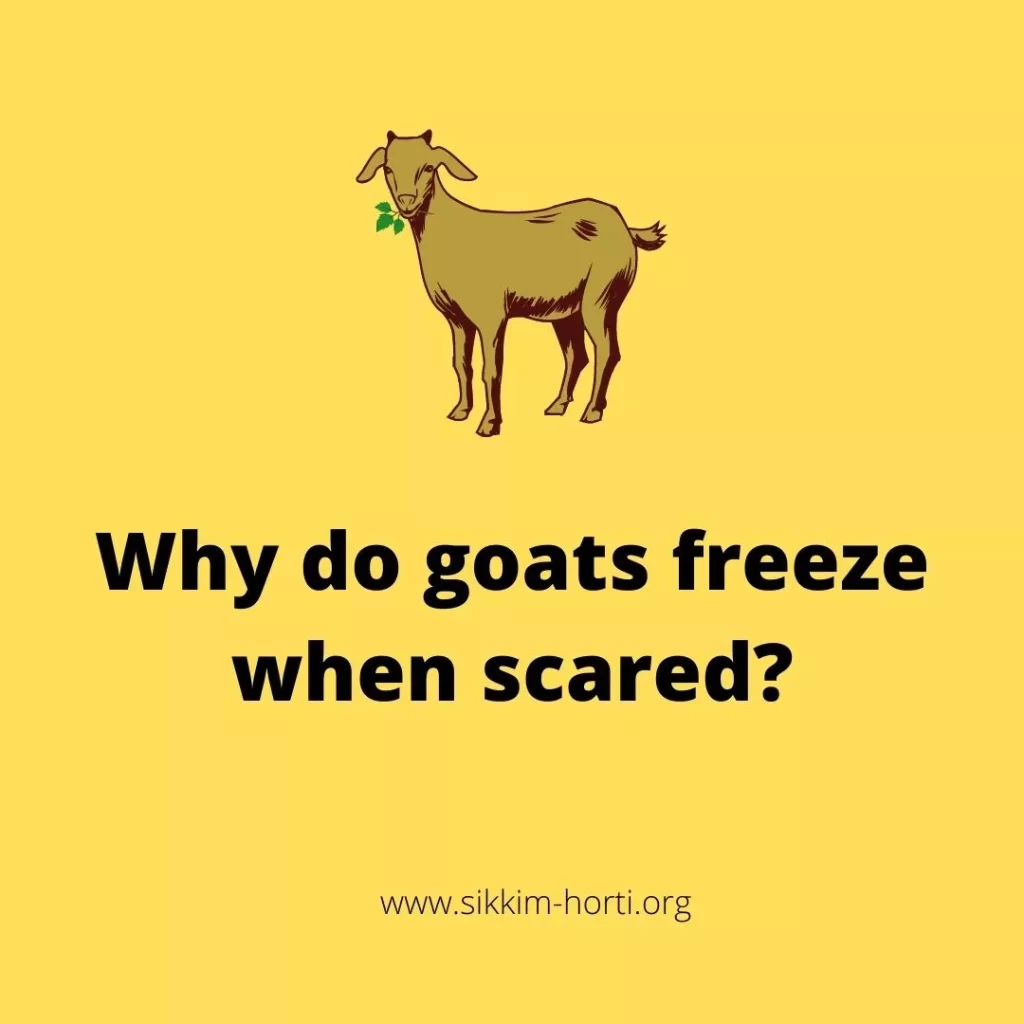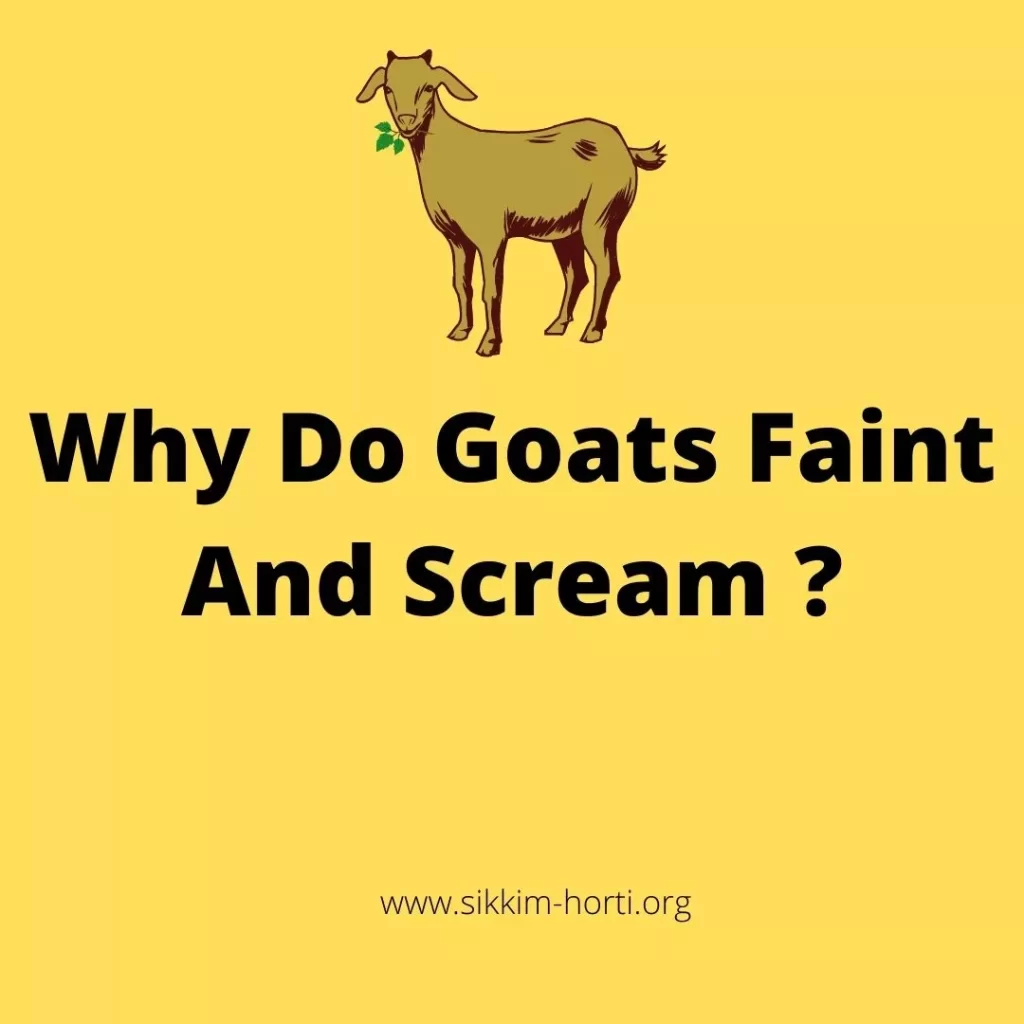“Why Do Goats Faint And Scream” is a question which comes into your mind on seeing a goat faint and scream
Goats are the most adorable animals on earth, so it is easy to forget that they can be prone to fainting. This article will discuss why goats faint and how you can prevent this from happening in your own flock.
One of the most common reasons why goats faint is because they are overheated. Goats are not able to sweat like humans do, so they can overheat very quickly in hot weather. If you live in a warm climate, be sure to provide your goats with plenty of shade and fresh water to drink. You may also want to consider using a fan to help keep them cool.
Another reason why goats faint is because they are dehydrated. Make sure your goats have access to clean drinking water at all times, especially during the summer months. If it’s hot outside and your goat isn’t drinking enough water, she may start to feel faint.
Sometimes goats will faint if they eat too much or if they consume something that is poisonous. If you notice that your goat has eaten something she shouldn’t have, call your veterinarian right away.
Contents
- 1 Why Do Goats Faint ?
- 2 Why Do Goats Scream ?
- 3 Does fainting hurt goats?
- 4 Do Fainting goats live long?
- 5 Do fainting goats scream?
- 6 Why do screaming goats scream?
- 7 How much is a fainting goat cost?
- 8 Do you have to milk fainting goats?
- 9 Are fainting goats really dangerous?
- 10 Why do goats freeze when scared?
Why Do Goats Faint ?
Vagal tone is a common reason for fainting in goats. Vagal tone refers to the level of alertness and responsiveness, which is controlled by part of the brainstem called the vagus nerve. In some cases when a goat gets startled or excessively excited their heart rate decreases dramatically as does blood pressure causing them to faint easily.
This can be very dangerous if they are being led somewhere at this time because it might cause them to slip and fall since their muscles have become so relaxed by lack of oxygenated blood flow that they cannot hold themselves up with all four legs anymore. If you want your goats around then just keep calm around them, never startle or excite them suddenly so you don’t trigger any episodes from happening.
So while fainting may look scary, it is typically not a sign that anything is wrong and doesn’t hurt the goat. However, there are some instances where goats can injure themselves when they faint so be sure to keep an eye on them just in case. If you have any concerns at all then contact your veterinarian for help.

Why Do Goats Scream ?
Goats scream for a number of reasons: when they’re in pain, when they’re afraid, or when they want something. Their screams are loud and piercing, which can make them seem scary to people who don’t know much about them. But goats are actually gentle creatures who just need a little understanding.
Does fainting hurt goats?
Typically when an animal faints it is because they are in a state of shock from something. They may have been badly injured and their body goes into protective mode, shutting down the organs and other systems to keep them alive for as long as possible. So typically fainting doesn’t hurt goats or any other animals that faint due to injury or illness.
Do Fainting goats live long?
There is no definitive answer to this question as there is limited research on the lifespan of fainting goats. However, anecdotal evidence suggests that they do not live significantly longer than other breeds of goats. This is likely due to the fact that they are a relatively small breed and are prone to health problems like pneumonia and joint issues. As with any animal, providing good care and nutrition will help extend their life span. So, if you’re lucky enough to own a fainting goat, make sure you take good care of them!
Do fainting goats scream?
Fainting goat is the common name for a type of domestic goat that experiences myotonia congenita, also known as “fainting” or “throwing-cushion” disease. A similar condition occurs in humans under the name paramyotonia congenita (PMC). Myotonia causes affected goats to stiffen and fall over when startled; this generally lasts only about ten seconds before the muscles relax again. The breed was developed by Colonel Edward Rockway Blake around 1930 at his Warrenton, Kentucky farm. He crossbred Nubian dairy goats with Tennessee fainting goats which had been obtained from local farmers near Fayetteville, TN. Breeding them produced offspring unable to fully arch their backs, which resulted in the distinctive “fainting” behavior when startled.
The breed is also known for its meat and milk production; it has been used to increase populations of other goats that share the myotonia congenita condition but do not display the fainting reaction. The breed can be affected by an undiagnosed form of PMC characterized by muscle tremors, ataxia (uncoordinated movement), hypermetria (overshooting a target during intentional movements) resulting in falls while running or playing,and even tetanus-like episodes with jaw snapping. This mutation was found in some Nubian dairy goat breeds where they are crossed with Tennessee Fainting Goats in the quest for higher milk production.
Why do screaming goats scream?
One theory is that the screaming is a way of communicating with other goats. Another theory is that the screaming helps the goat stay alert and aware of its surroundings while it’s grazing in open fields. And yet another theory suggests that the screaming noise startles predators away from the herd. Regardless of why they do it, one thing is for sure – those screams are pretty darn funny!

How much is a fainting goat cost?
A fainting goat is a breed of domestic goat whose muscles freeze for roughly 10 seconds when the goat feels panic or fear, often causing it to collapse on its side. The word “fainting” refers to the behavior of falling unconscious brought on by the fight-or-flight response that animals exhibit in some situations.
Fainting goats are extremely rare, and as a result, very expensive. A fainting goat can cost anywhere from $3500 to over $10,000 depending on its bloodline and conformation type or whether it is a purebred animal.
Fainting goats have been around since the 1930s when an Ohio farmer purchased a pregnant Nubian doe from a pet store. The farmer’s grandson, who was 10 years old at the time, noticed that the goat would faint when she got scared. The farmer began to breed the goats and the trait was passed down through the generations.
Today, there are about 6000 fainting goats in the United States. Fainting goats are popular as pets, but they are also used for meat, milk, and fiber. Their economic value is increasing as more people learn about this unique breed of animal. So, if you’re looking for an interesting pet that’s sure to turn heads, a fainting goat may be just what you’re looking for!
Do you have to milk fainting goats?
No, you do not have to milk fainting goats. Fainting goats are generally not milked for dairy purposes, but rather for their meat and fur. They are considered a novelty animal because of their genetics. These animals gained their name by actually “fainting” or collapsing when they feel threatened or excited. Though this is rare, it does happen more often than with other goat breeds.
Are fainting goats really dangerous?
It really depends on the personality of your particular animal(s) and how accustomed you are to working around large animals like goats which can kick unexpectedly if spooked or frightened enough causing them to fall over (the goat will go stiff, lose balance & laydown).
Some owners have found that their goats simply “faint” out of fear when they are being milked, so it is important to be aware of the animal’s personality before attempting to milk her. If you have never worked with goats before, I would suggest finding an experienced goat owner or someone who has been to a milking workshop to help you get started.

Why do goats freeze when scared?
Scientific Studies have been showing that goats freeze when they are scared. They do meet predators head on, but instead of fighting back, the goat will freeze and hope the predator does not see them as a potential meal. When a goat is cornered or feels as if there is no other option to flee from their predator, the goat may charge at it in order to escape. If this was successful, then the goat would run away as fast as possible.
Although this method seems quite logical to us humans because we feel that way all the time, this was not always how goats acted before being domesticated by humans thousands of years ago. Before their domestication, goats would either flee from predators by climbing trees or standing very still hoping the predator would not see them as a potential meal.
Goat’s natural habitat is an area where they can be protected from predators because of the environment they live in. The best place for a goat to live is one that has well protected cliffs or other areas where it can escape from its predators, such as a mountain. After goats were domesticated by humans, the land became their main source of food and many domestic breeds began living close to human settlements. Because of this change in their environment, the way the goats acted when being threatened by a predator changed as well.
They no longer had any cliffs to escape to so instead they would freeze hoping that their predator would just leave them alone instead of eating them. In 1998, The European Journal of Wildlife Research published a study that looked at how goats reacted to different types of predators. The study found that when goats were faced with a predator, they would first freeze and then try to escape if they had the opportunity. If they were unable to flee, then they would start to tremble and eventually display capitulation behavior by lying down on their side.
The interesting thing about this study is that it showed that goats reacted differently to different predators. When faced with a dog or a human, the goat would usually start to tremble and then capitulate. However, when faced with a wolf or a lynx, the goat tended to freeze first and then try to escape if possible. The researchers conducting the study believe that this difference in reactions from the goat is due to the fact that a dog or human was not as much of a threat to them as wolves and lynxes.
